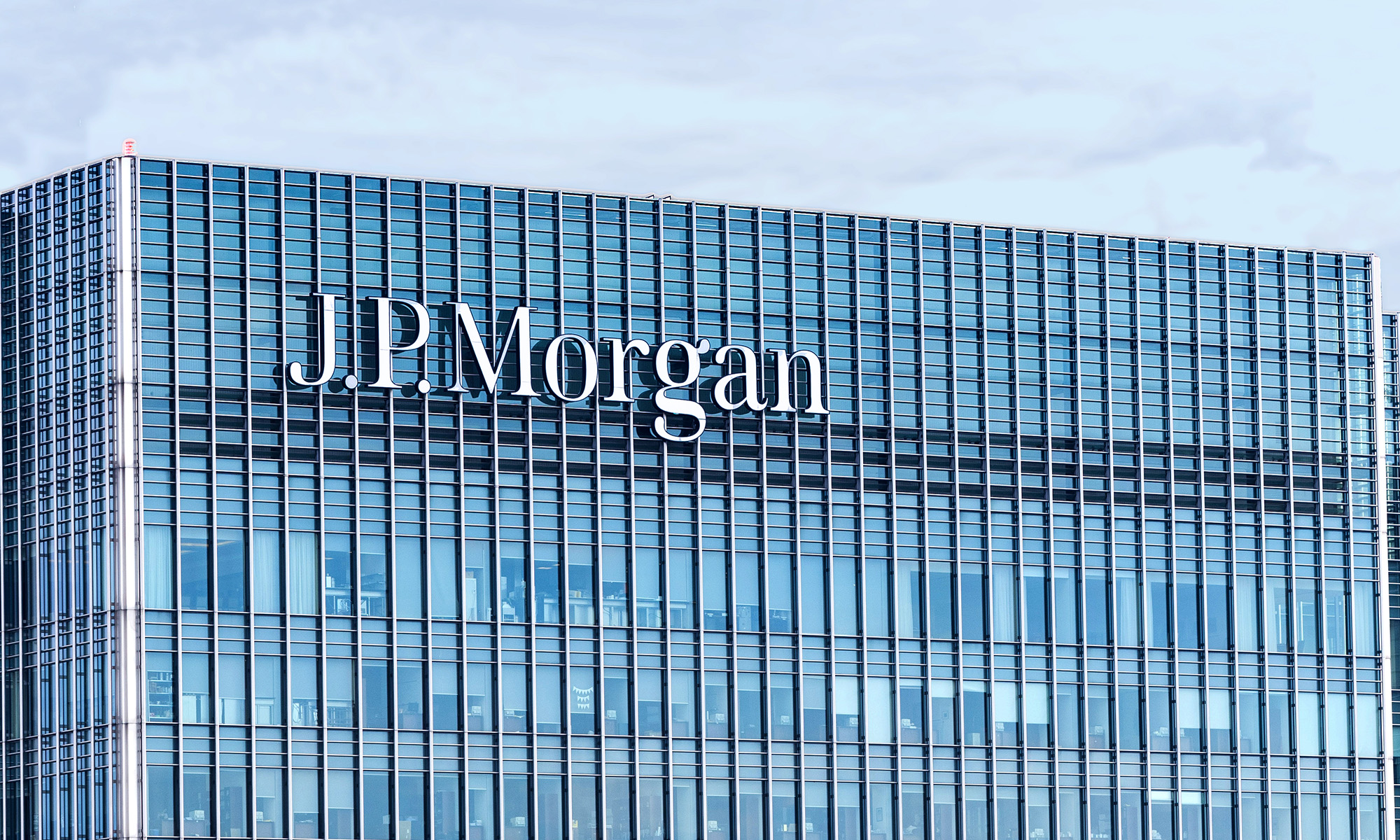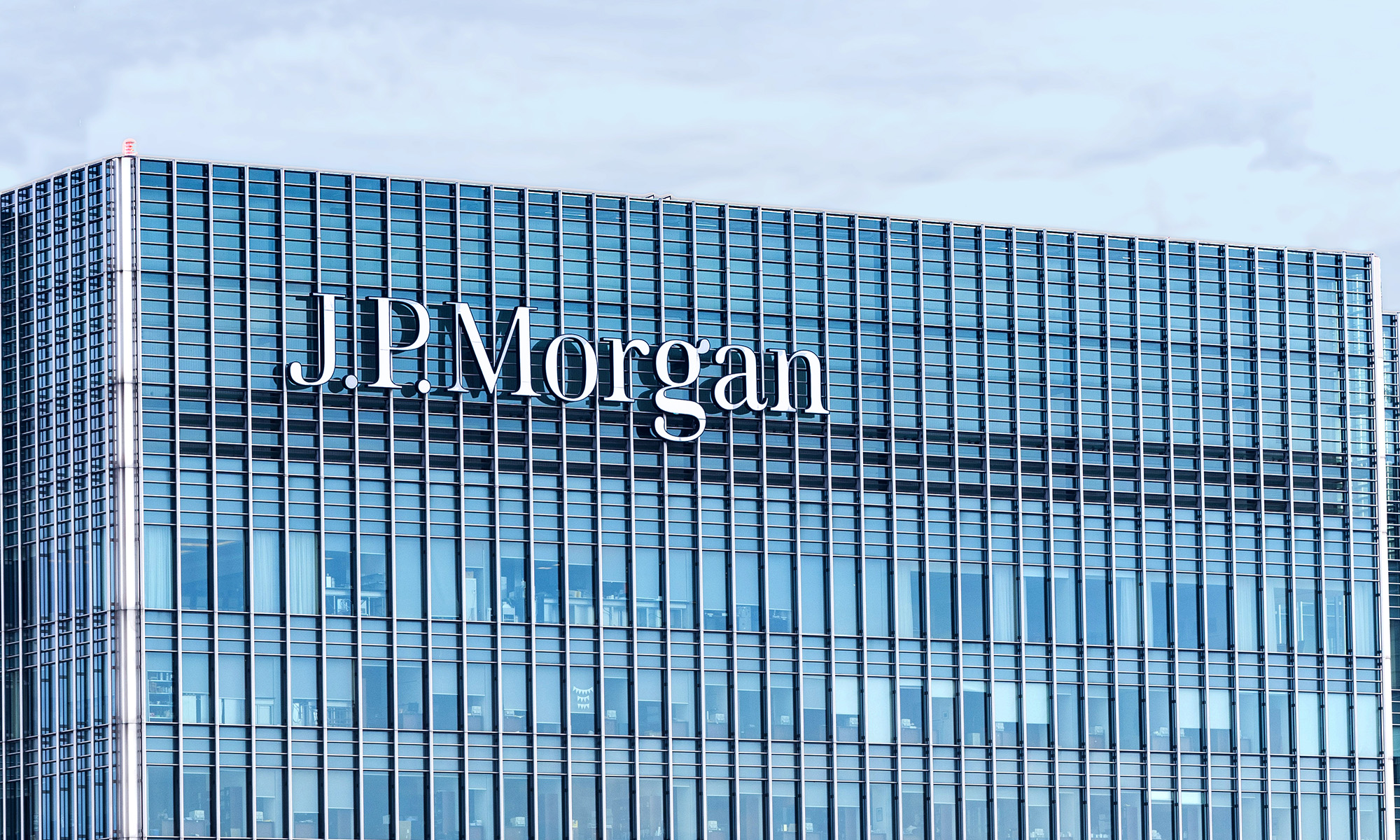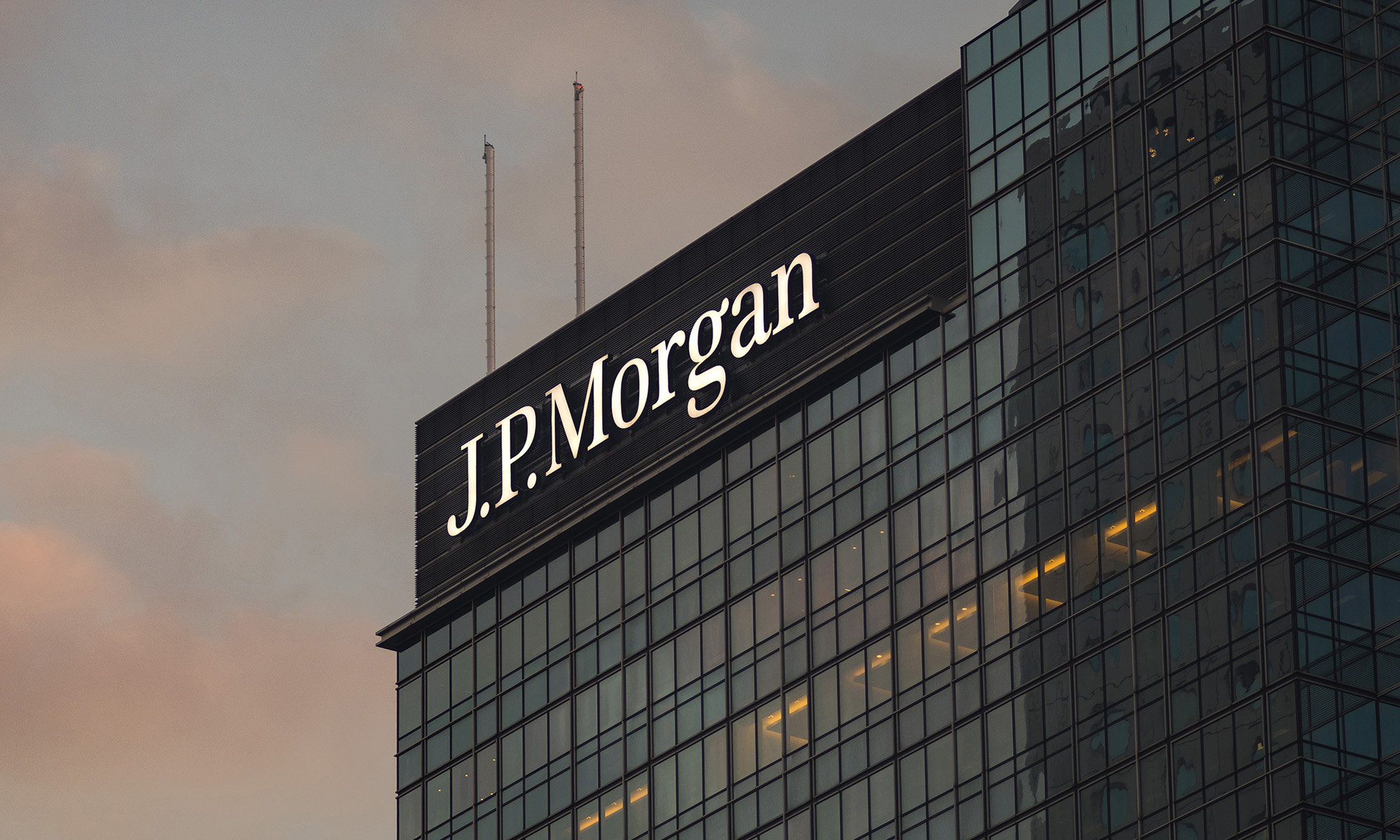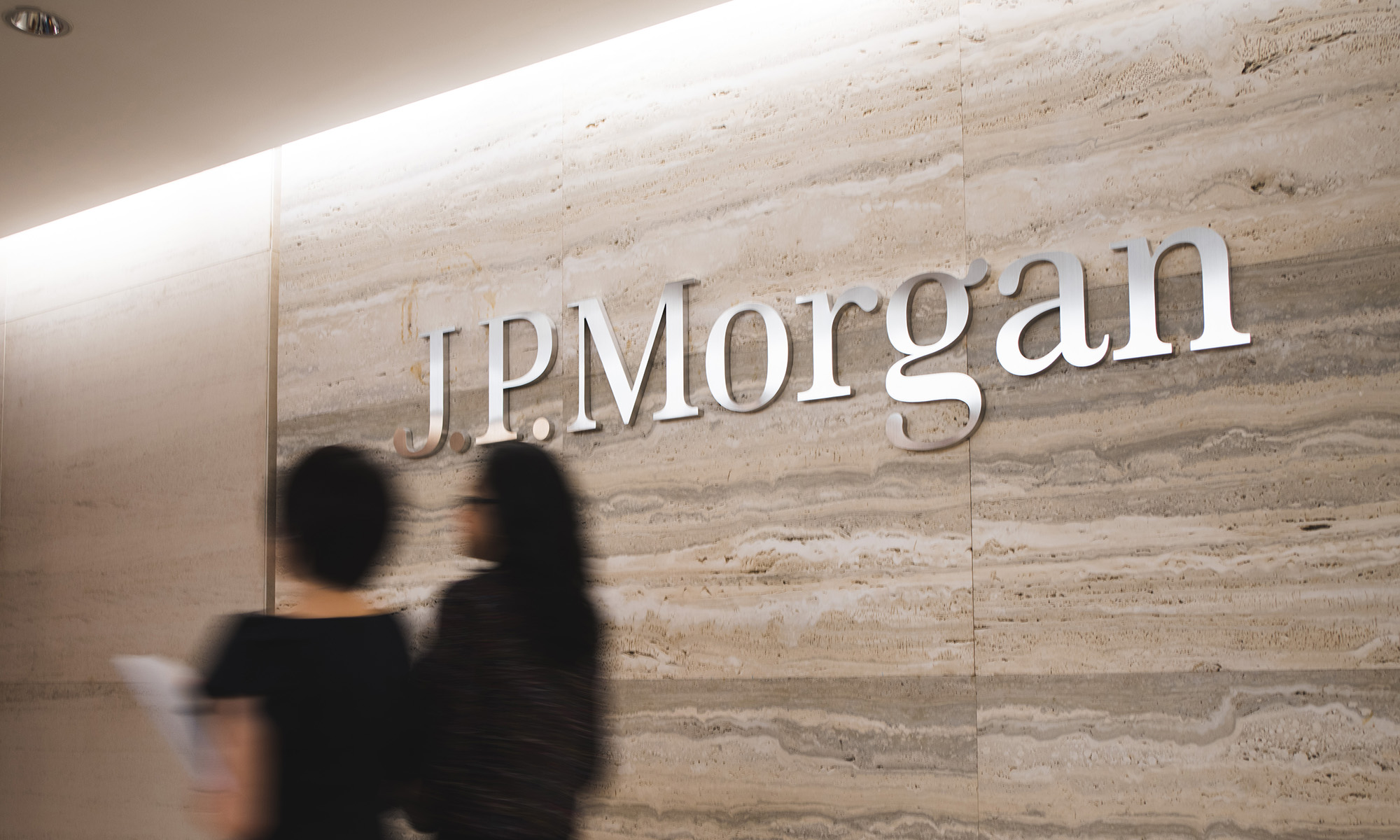Check out the latest JPMorgan Chase earnings call transcript.
JPMorgan Chase (JPM +3.89%) is the biggest U.S. bank, and when its results don't match its forecasts, investors do take notice. But in this case, the weaker-than-anticipated numbers from the bank's trading department may be distracting folks from the more important insights Jamie Dimon and the rest of his team had to offer about the big picture. Given the pervasive degree to which JPM has fingers on the pulse of the economy, it's fair to say its leaders have visibility into matters in a way that most others lack.
In this segment of the MarketFoolery podcast, host Chris Hill and MFAM Funds' CIO Bryan Hinmon talk about what those executives had to say about the financial health of U.S. consumers, credit markets, the economic growth outlook, the many ways that the president's government shutdown will damage the economy, and more.
A full transcript follows the video.
This video was recorded on Jan. 15, 2019.
Chris Hill: I think we should start with JPMorgan Chase because this appears to be a story that is bigger than just one Wall Street bank's earnings report. The headline is that, for the first time in nearly four years, JPMorgan Chase came in below expectations. I don't know to what extent you follow that bank or any big Wall Street bank closely, but the CEO, Jamie Dimon, his comments to me are the real story.
But first, let's just stick with the bank. How interesting are the big banks, whether it's JPMorgan Chase or others, to you?
Bryan Hinmon: They're not overly interesting. However, JPMorgan is, I'd say, one of the four top conference calls that I personally listen to on a regular basis to get my bearings for what's going on in the economy and the markets. I tend to listen to JPMorgan, I tend to listen to Paychex, Fastenal for the industrial side, and then Mastercard or Visa. If you listen to those four, you get a pretty good lay of the land of what's going on domestically, but also globally in a lot of cases.
JPMorgan's worth listening to because they're the largest bank in the U.S., they're the largest credit card issuer, they're the second largest merchant acquirer, and they're the largest investment bank. This is a behemoth that has their fingers in a lot of what makes the economy and the market go.
Their year was very good. The quarter was a little noisy. What's going to get the headlines in the quarter here was, they had a big miss in their trading department. That's naturally a noisy part of their business, so I'm going to let the traditional news sources take care of that one and just put that to the side because it's not really indicative of, I think, what's important or what's going on truly in driving their business.
The place that I like to look is what they're saying about the U.S. economy and about consumers. As you noted, it's important to read the comments and understand what Jamie Dimon and his company are saying. I'll read you a couple of quote excerpts here real quick. "Healthy and engaged U.S. consumer that is spending, saving, and investing." He also said that credit is pristine. The CFO said "the outlook for growth in the economy is still strong" and that internationally, slower but still positive global growth. Those are good things to hear.
Hill: They are good things to hear. One thing, you mentioned missing in the trading department. I get that in the grand scheme of things, Jamie Dimon doesn't particularly care about one miss in one quarter, and he said as much on the call. Basically, "I don't really care about that." My hunch, though, is that if you work for Jamie Dimon in the training department, behind closed doors, that's not how the conversation is going. That's for them to deal with. I'm just saying, I saw that quote and I thought, "Mm, I don't know about that. I bet if you work for him, you're hearing a different tune."
Hinmon: They definitely run a tight shop at JPMorgan. This is the bluest of blue chip banks that there are. They escaped relatively unscathed through the financial crisis, and they're one of the few rare banks to have that. Jamie Dimon and the way he runs things and his team deserve a lot of credit there. I think he's much more willing to tolerate revenue misses. He's much less willing to tolerate a ramp in risk-taking. You see this in how the company presents its data and talks to investors. They always quote their fortressed financial position, their fortressed balance sheet. They very much put risk management first and foremost, and are much more tolerant of misses on the top line.
Hill: Dimon's comment about the state of the U.S. economy, and in particular the government shutdown, which is now the longest government shutdown in our country's history, you couple that with the fact that this morning, the White House came out saying that they're now doubling the estimate of the cost that the government shutdown will have, the impact on the economy. You take those two things together, and Dimon saying, "Yeah, this is going to be problematic for a number of reasons, not the least of which is delaying IPOs." We had talked on Motley Fool Money a couple of weeks ago about how, toward the end of 2018, despite the volatility, there were reports coming out that IPOs were actually going to be sped up in the first half of 2019. Clearly, if the government is shut down, that's not going to be the case.
All of this together is a little concerning because, as you said, Dimon runs a great shop. He's incredibly smart. He's highly respected. If Warren Buffett is the economic reassurer in chief in our country, Jamie Dimon is probably on the shortlist to come right after him. It's one of those situations where, when Dimon talks about the economy, he does so in very smart and measured ways, and this is a little troubling.
Hinmon: Agreed with all of that, Chris. I think it's worth noting that Buffett recently purchased more JPMorgan shares. He sees that, as well.
The government shutdown and its impact on IPOs, I think, is more concerning to you and I than it should be to most. 2019 is going to be a big year for splashy, important IPOs. Companies out there like Airbnb, Uber and Lyft, Slack, just to name a few, are the big headliners. They're going to go public not because they're desperately in need of money and are going to be in some cash crunch if they're pushed out a quarter. So I don't see that as being among the big impacts that the government shutdown could have.
Again, I think where it comes full circle is, we have so many workers here in the D.C. area that have been furloughed. Their day-to-day lives are impacted by not getting paid. That can reverberate throughout the economy. That's why my focus is squarely on Dimon's comments around the U.S. consumer and even U.S. businesses and the impacts that it might be having there.
He was fairly reassuring, I think, on this call. Together with his comments about the credit being pristine and their loan books still growing, I'm not worried yet. However, the longer this does go on, the longer it begins to shake consumer confidence even outside of those directly impacted. We'll start to see that playing out in bad ways.
Hill: Not that I'm overly concerned for what your work life is like, I'm a little concerned, but I can't say it's a day-to-day concern, but I am curious if the economic uncertainty in the United States makes it harder for you to do your job. When you're looking at different companies and you have almost this ripple effect of, we have the government shutdown, we have economic uncertainty, and therefore, CEOs across any number of industries are giving, if not less guidance, they're giving vaguer guidance because it's harder for them to plan.
Hinmon: It actually makes our job easier, in some ways.
Hill: Kudos!
Hinmon: It creates uncertainty, it creates volatility, and that creates more opportunities for us. We spend our time trying to understand the guts of businesses and make our own assessments on what their futures are going to be. And if companies issue less guidance or less helpful guidance, we tend to find larger spreads between what we think is reality and what the market is pricing in as reality. So it creates more opportunity for us. It creates more chaos in our day to day, of course, as investors are clamoring and worried and asking for their money back, that sort of thing. But from the pure investing side, it actually makes the job more interesting and easier in some ways.






